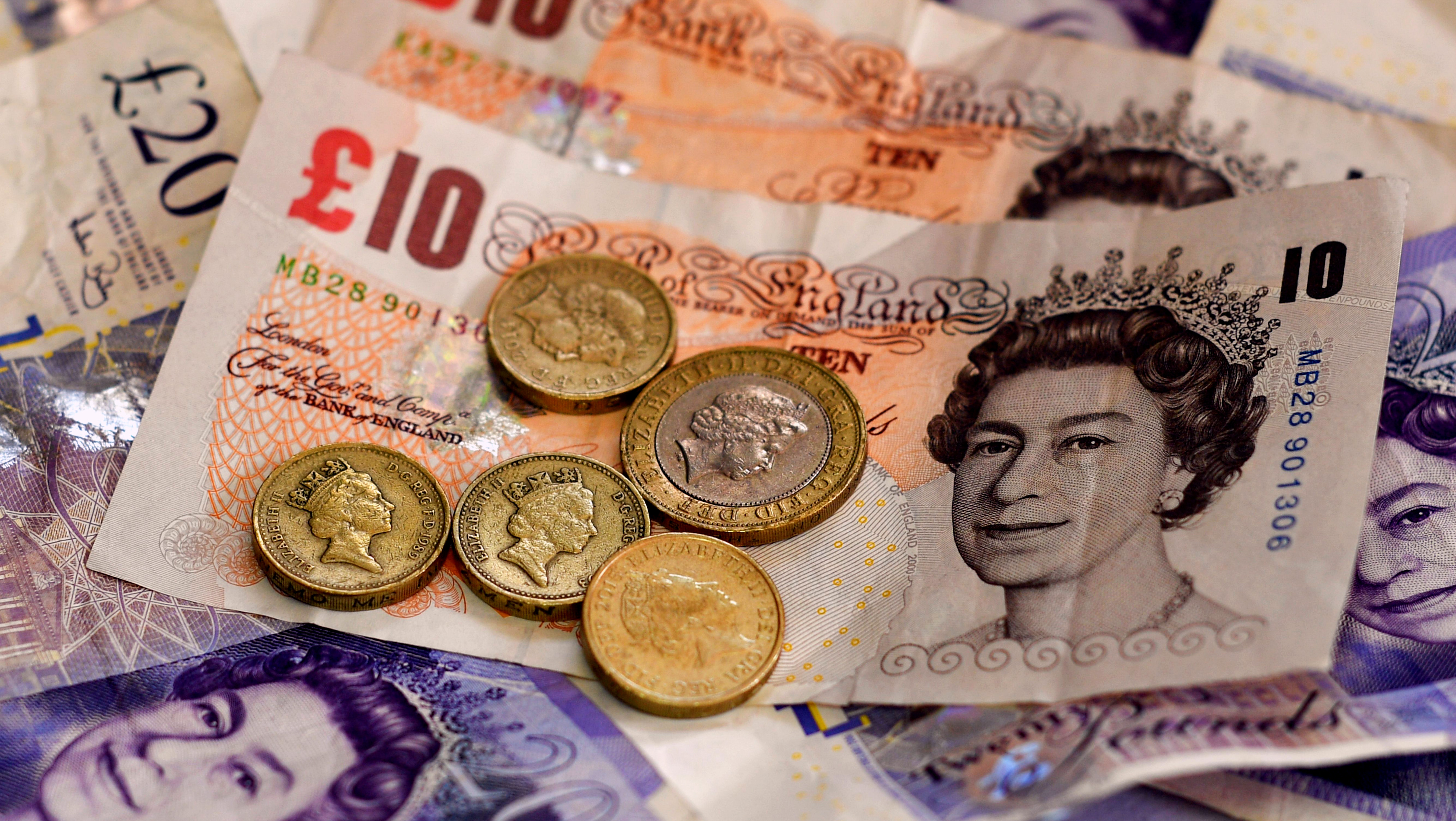UK cost of living crisis: what will increase in price from April?
The new tax year will see a rise in outgoings for millions of households

A free daily email with the biggest news stories of the day – and the best features from TheWeek.com
You are now subscribed
Your newsletter sign-up was successful
Millions of British households are bracing for further financial constraints when the start of the new month, and new tax year, arrives on Friday.
With a number of bills and taxes set to increase from 1 April, the UK’s cost of living crunch is going to “step up a notch”, said WalesOnline. The changes will “hit everything”, from energy prices and rail tickets to National Insurance and council tax.
This is some good news, however, as state pensions will increase by 3.1% on 6 April, which equates to “an annual boost of up to £289”, Which? reported. It was also confirmed in October’s autumn budget and spending review that the National Living Wage will increase from £8.91 to £9.50 from 1 April. This means the country’s lowest paid workers will receive an extra £1,000 per year, the i news site said.
The Week
Escape your echo chamber. Get the facts behind the news, plus analysis from multiple perspectives.

Sign up for The Week's Free Newsletters
From our morning news briefing to a weekly Good News Newsletter, get the best of The Week delivered directly to your inbox.
From our morning news briefing to a weekly Good News Newsletter, get the best of The Week delivered directly to your inbox.
Here we break down the key changes set to impact UK households in the coming months.
1. Inflation
The UK’s rate of inflation rose to 6.2% in the 12 months to February 2022 – up from 5.5% in January, according to the Office for National Statistics (ONS). This “faster than expected” increase means the UK’s inflation rate has now hit a new 30-year high, Reuters said.
An increase in the consumer prices index took inflation to the highest rate since March 1992, when it stood at 7.1%, The Guardian reported. And “further increases are expected”.
How high could UK inflation rise in 2022?
A free daily email with the biggest news stories of the day – and the best features from TheWeek.com
2. Energy bills: gas and electric
April will “truly be the cruellest month” for tens of millions of Brits who are facing the “biggest cost of living crisis in decades”, said The Mirror. And one of the major talking points is the surge in gas and electric prices. If you’d been “worrying about energy bills going through the roof this week, you should”, said the Birmingham Mail.
In February regulator Ofgem confirmed that the energy price cap will increase by a record 54% from 1 April. Ofgem’s price cap on an average bill will rise £693 for approximately 22m customers. Those on default tariffs paying by direct debit will see a £693 increase from £1,277 to £1,971 per year and prepayment customers will see an increase of £708 from £1,309 to £2,017.
The pain is “likely to get worse” in October, when the next cap is brought in, the Daily Express said. Experts believe it could rise to around £3,000 per year.
3. Water bills
Industry body Water UK said bills will rise by an average of 1.7% in England and Wales from April. This will push up the typical annual bill by roughly £7 to £419 a year, The Guardian said. “In some parts of England bills could rise by up to 10%.”
Customers in some parts of the country have noticed an increase in their bills, BBC News reported. “Of the 11 water and sewerage companies in England and Wales, customers of Northumbrian Water (10.8%) and Severn Trent (7.1%) have seen the highest average bill rises. Customers of some other companies have actually seen average bills fall.”
With costs set to increase the Liverpool Echo has put together some tips on how to reduce your water bill. Tips include fixing dripping taps and leaking toilets and switching to an efficient showerhead.
4. National Insurance contributions
From next month a £12bn rise in National Insurance will “hit working people” as the Treasury “looks to cut Covid backlogs in the NHS and begin funding social care”, The Mirror said. This will mean that employees, employers and the self-employed will all pay 1.25p more in the pound for National Insurance from April 2022 – from 12% to 13.25%.
A health and social care levy of 1.25% is due to be added to employees’ National Insurance contributions from April. The additional £12bn raised each year will initially go towards easing pressure on the NHS and then be pumped into the social care system.
In the spring statement last week the planned National Insurance hike to pay for NHS health and social care was not delayed or removed as many had hoped and called for. However, Chancellor Rishi Sunak did announce a £3,000 rise in the threshold on National Insurance payments. This significant increase to the planned £300 threshold rise will allow people to earn £12,570 before National Insurance becomes payable.
Spring statement: highlights of Rishi Sunak’s ‘mini budget’
5. Council tax
New council tax rates will begin 1 April, and will affect “everyone aside from those who are exempt, such as students and those on some benefits”, the Daily Express said. “All in all, your council tax will increase by 5%. This is made up of a 2% council tax rise and an additional 3% for social care.”
In February Sunak announced a “handout” that would give a rebate of £150 to those living in properties in council tax bands A to D, and a £200 reprieve on energy bills, to be paid back over five years, The Times reported. The chancellor is “considering proposals for a new council tax rebate” after his spring statement “failed to allay panic in No 10 over the spiralling cost of living crisis”.
6. Travel: rail tickets and air passenger duty
According to official inflation projections, commuters are “on track to be hit by the biggest increase in rail fares since records began”, The Telegraph reported. “Ticket prices are expected to increase by about 10% if ministers keep them pegged to the Retail Prices Index.”
There will also be a “shake-up” of air passenger duty, the tax that passengers pay on flights that take off from the UK, The Mirror said. Changes announced in last autumn’s budget will see long haul flights become more expensive while the tax paid on domestic flights will be cut in half from April.
7. Broadband, mobile phones and TV
A number of broadband, mobile and TV companies have announced price hikes, YourMoney.com reported. Sky will increase its broadband and TV prices by around £43 per year on 1 April. And depending on which service they have and when they signed up, BT, EE and Plusnet customers will see a 5.4% or 9.3% hike from 31 March.
8. Royal Mail stamps
The Royal Mail announced that the price of first and second-class stamps will increase from 4 April. The price of a first-class stamp will rise by 10p to 95p with a second-class stamp going up by 2p to 68p. “If you're a regular stamp-buyer, it’s worth getting your purchase in before the prices rise,” The Mirror said.
-
 Political cartoons for February 19
Political cartoons for February 19Cartoons Thursday’s political cartoons include a suspicious package, a piece of the cake, and more
-
 The Gallivant: style and charm steps from Camber Sands
The Gallivant: style and charm steps from Camber SandsThe Week Recommends Nestled behind the dunes, this luxury hotel is a great place to hunker down and get cosy
-
 The President’s Cake: ‘sweet tragedy’ about a little girl on a baking mission in Iraq
The President’s Cake: ‘sweet tragedy’ about a little girl on a baking mission in IraqThe Week Recommends Charming debut from Hasan Hadi is filled with ‘vivid characters’
-
 Nine financial and retirement solutions to support your plans for the future
Nine financial and retirement solutions to support your plans for the futurefeature These companies could help boost your earnings while easing you into your golden years
-
 A world of choice in uncertain markets
A world of choice in uncertain marketsfeature Why a globally diversified basket of equities might be worth the risk over the long term
-
 To good wealth: why wine could be a tempting alternative investment
To good wealth: why wine could be a tempting alternative investmentfeature Fine wine is less susceptible to changes in inflation than many other financial assets